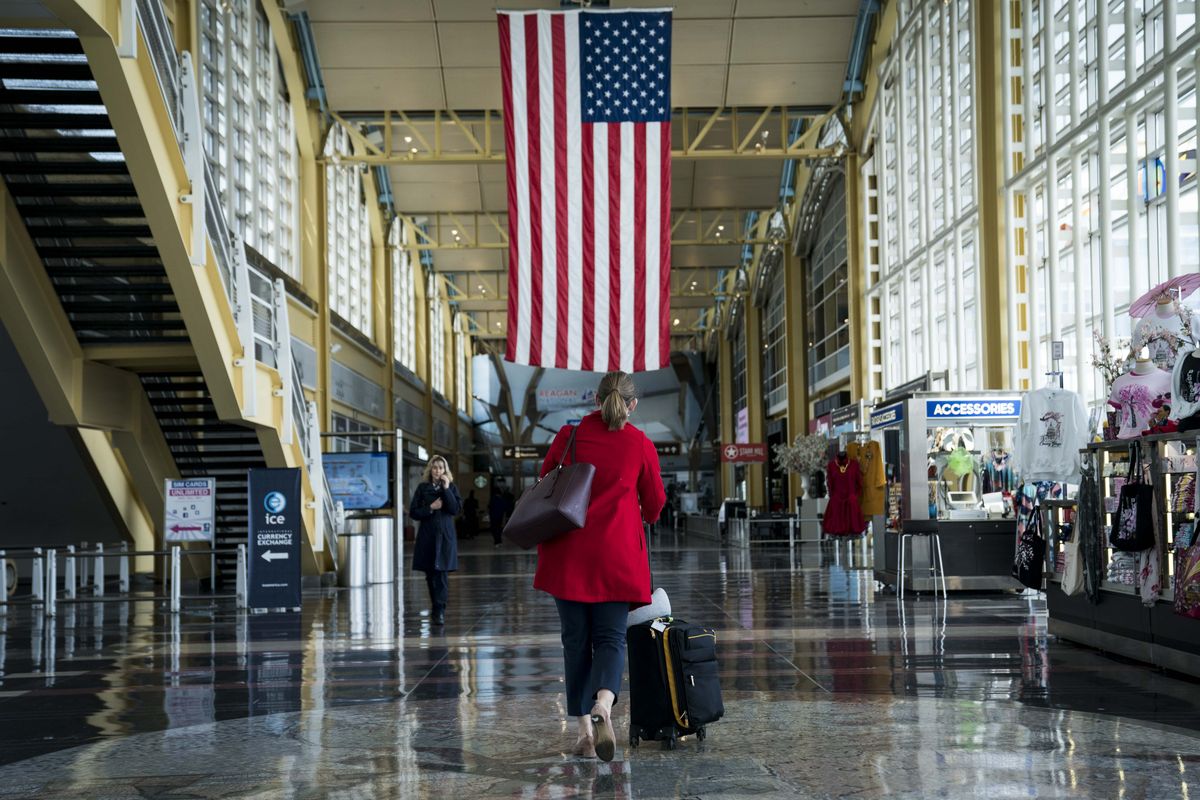Aviation
Airlines, Airports Seen Needing Costlier Revamp for Virus Era

(Bloomberg) — Airlines and airports must adopt even more measures against the spread of Covid-19, some of which would imply major new costs for an industry already suffering steep losses, a public health expert will tell lawmakers.
Passengers should be screened for elevated temperatures and all employees should be required to wear masks and gloves, according to prepared testimony by Hilary Godwin, dean of the University of Washington’s School of Public Health. In-flight seating, she said, must be arranged so that people aren’t too close together, and airports have to be reshaped to promote social distancing.
The air-travel industry and government agencies overseeing it must allow public health considerations to “play a far greater role than before this pandemic,” Godwin said in the remarks. She is among four witnesses scheduled to appear Wednesday before the Senate Commerce Committee in a hearing on the state of the airline industry during the coronavirus pandemic.
While the hearing will be held in person despite the virus, Godwin thanked the committee for allowing her to testify remotely. Her testimony was obtained by Bloomberg News.
She recommended dramatic changes to how airport terminals looked before the pandemic, when passengers clustered in boarding areas, restaurants and security lines. Now, there should be social distancing in all those areas, she said.
Read More: Delta Air Thins Out Cabins Further, Going Beyond the Middle Seat
“The probability that healthy individuals will interact with one or more individuals who are infected but may not know increases exponentially as the number of people passing through the airport increases,” she said in her written testimony.
Other measures that should be considered include requiring passengers or aviation employees to attest they are healthy before being allowed to travel or report to work. It may also be possible soon to test each person for infection before entering airports, she said.
“While each of the strategies discussed here comes with inherent limitations and poses its own logistical challenges, combining them together creates a ‘net’ that will help to reduce overall risk to the millions of individuals who work in, travel using, and benefit from the aviation industry each day,” she said.
While all large U.S. airlines now or will soon require flight attendants and passengers to wear face coverings, standards for other employees vary. Transportation Security Administration screeners, for example, have the option to work without masks.
Airlines have been burning through $10 billion a month as passenger totals have tumbled more than 90% during the past month, according to Airlines for America.
Other Witnesses
There is no doubt “that the U.S. airline industry will emerge from this crisis a mere shadow of what it was just three short months ago,” Nicholas Calio, president of Airlines for America, said in prepared testimony for the hearing. “There is simply no way around the detrimental and lasting economic impact this pandemic will have on our industry.”
Earlier: Boeing, Airbus Shun Bailout While Counting on Aid for Airlines
The industry embraces additional actions, such as widespread temperature checks and increased tracing of those who come in contact with infected people aboard planes, Calio added.
Addressing an issue that has drawn criticism, Calio said airlines cannot afford to reimburse every passenger who canceled a flight because of the virus without going into bankruptcy. Airlines have followed U.S. law requiring refunds when the carrier itself cancels a flight, he said.
Eric Fanning, president of the Aerospace Industries Association trade group, plans to tell senators on the Commerce Committee that companies of all sizes in the sector are weighing job cuts and furloughs, citing one company that had to lay off half of its engine manufacturing staff, according to a copy of his prepared remarks.
Fanning also plans to raise questions about whether the rules governing $17 billion in aid offered by the Treasury Department for national security-critical companies under the bill is too restrictive.
-

 Banking & Finance2 months ago
Banking & Finance2 months agoOman Oil Marketing Company Concludes Its Annual Health, Safety, Environment, and Quality Week, Reaffirming People and Safety as a Top Priority
-

 News2 months ago
News2 months agoJamal Ahmed Al Harthy Honoured as ‘Pioneer in Youth Empowerment through Education and Sport’ at CSR Summit & Awards 2025
-

 OER Magazines2 months ago
OER Magazines2 months agoOER, December 2025
-

 News2 months ago
News2 months agoAI Security Conference 2025 Hosted by Securado Highlights the Changing Cybersecurity Landscape
-

 Insurance1 month ago
Insurance1 month agoSupporting Community Wellness: Liva Insurance Sponsors Muscat Marathon 2026 with Free Health Checkups
-

 Interviews1 month ago
Interviews1 month agoEXCLUSIVE INTERVIEW: TLS Rebranding Marks Strategic Leap Toward Innovation, Sustainability & Growth
-

 Insurance3 weeks ago
Insurance3 weeks agoLiva Insurance Supports Community Wellness Through “Experience Oman – Muscat Marathon 2026”
-

 Banking & Finance4 weeks ago
Banking & Finance4 weeks agoA New Platform for SME Growth: Oman Arab Bank Unveils Tumouhi






























